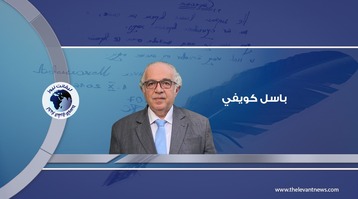-
Egypt: Is the Economic Crisis Hurting El-Sisi’s Approval Ratings?

Under the escalating pressures of the Russia-Ukraine war on the Egyptian economy, and the uncertainty about when this stress is going to end, the issue of citizen approval ratings of President Abdel Fattah El-Sisi has made a strong comeback. Should we look at the return of the talk about citizen satisfaction, in Egypt, in the same context of media cynicism, or is it an alarm call that should be taken seriously?
The last time a private or governmental research center surveyed the Egyptian public about their satisfaction with the performance of the government or the president of the state, was in 2016, before the launch of the national economic reform plan. These surveys were mainly used as tools in the media war between those who supported and those who opposed the economic reform program, at that time.
But this time, there is a general concern that is shared by analysts, media personnel, that the current economic stress could instigate public protests that may renew the political instability that the country had witnessed following the Arab Spring revolutions. The alarming part, here, is that the Egyptian president, El-Sisi, has publicly declared that he shares the same worries.
“The issue is no longer about availing lucrative investment opportunities. My concern is to preserve the state of political stability in Egypt. If the [economic] pressures increase further, what should we expect them to do?” President El-Sisi warned, on June 13th, while opening a new national complex for animal and diary production, in Menoufia Governorate. “I am not keen on preserving political stability for my own benefit. When I talk about keeping the public satisfaction rates high, I am not aiming to preserve the power of the regime or the president. Rather, I am talking about the lives of the 100 million citizens that will be jeopardized if people come out [in protests] as a result of being unsatisfied.”
Since the beginning of the Russian invasion of Ukraine, in February, the Egyptian economy has been weathering a significant amount of stress. The sharp decline in eastern European tourist turnout to the Red Sea resorts, the disruption of food supply chain, especially in relation to wheat imports, and the spike in exchange rates of the Egyptian pound against the U.S. dollar due to international policies made to contain the unprecedented inflation rates; are some of the reasons leading to the heightened economic weight that the Egyptian government is trying to handle.
This pushed analysts, in the eastern and the western media, to make wild speculations about the potential of overthrowing El-Sisi leadership via a public revolution similar to the one that ousted Mubarak’s regime from power, in 2011. However, a closer examination of the crisis causations, the government performance to contain its consequences, and the traditional dynamism of the Egyptian politics indicate otherwise.
It is true that the Egyptian people are deeply frustrated by the economic regress, that came at a moment when they should have been harvesting the fruit of the macroeconomic reform program that has been successfully progressing over the past seven years. However, they are not angry at the government or the president. The bond of trust between the general public and El-Sisi’s leadership is still intact. The grassroots citizens still believe that El-Sisi is not corrupt and that he is sincerely working for their interest, not for the interest of a privileged elite of his own, as was the case under Mubarak. The poor, who benefited from El-Sisi’s socio-economic initiatives, such as “Hayah Karima,” know by experience that El-Sisi’s leadership cares for protecting them.
It may not be an exaggeration to claim that the Egyptian political leadership can, easily, benefit from the crisis in increasing its popularity among the public citizens, and thus avoid the scenario of jeopardizing the hard-won status quo of political stability. The key to overcome the current economic crisis, as well as all the potential crises in the future, is for the government to let go of its centralized approach, in economics and politics, and open a greater space for the private sector, political parties, and civil society organizations to share the burdens as well as the profits. The Egyptian government has already started to take unprecedented steps in that direction.
Despite heated criticism from some of the socialist members of the parliament, the Egyptian government is determined to proceed with its ambitious plan to liberalize the economy, while bending in the wind of the Russia-Ukraine war. The plan is to shrink government’s involvement in the market, as a competitor, to avail a space as large as 65% for the local private sector and the foreign investors to compete over the many lucrative opportunities that the huge and prolific Egyptian market has to offer. The government hopes that these new macroeconomic reforms should attract foreign investments of 40 billion dollars over the coming four years.
The initial reaction of the foreign investors and international lenders to these brave steps by the Egyptian government is quite promising. In less than one month, since the Egyptian Prime Minister, Mostafa Madbouly, announced the roadmap to opening the market, the government has been able to make deals of future investments with foreign investors and international lenders, that total as more than 30 billion dollars. Moreover, the ‘hot money’ investors, who fled the country in the past two years, started to crawl their way back to benefit from the new opportunities.
Moreover, on June 17th, at the St. Petersburg International Economic Forum, the Egyptian president announced that Egypt is expecting an increase in the economic growth rate by 5.5% compared to 3.3% in 2021, and that non-oil exports have increased to 32 billion dollars in the second quarter of 2022, despite the significant influence of the global crises, including the global economic standoff around the Russia-Ukraine war, as well as the COVID-19 pandemic.
Therefore, the Egyptian government should not allow itself to be dragged by the media claims about the decline of citizen satisfaction rates. Up till this moment, there is not a credible survey or data that proves or denies that. However, we know for sure that citizens are not angry at the leadership of President El-Sisi. Rather, the public citizens are frustrated by the economic retreat.
There is a huge difference between a citizen being ‘angry’ and being ‘frustrated’. In the first case, the government and the entire regime should be changed as this indicates failure. But, in the second case, the state leadership, which is still respected by the public citizens, should find a way to turn citizen’s frustration into a power that fuels positive changes that eventually brings hope back to their hearts. That is exactly what President El-Sisi and his administration should focus on, in the coming period.
BY: Dalia Ziada
You May Also Like
Popular Posts
Caricature
opinion
Report
ads
Newsletter
Subscribe to our mailing list to get the new updates!























